Rohingya crisis unprecedented
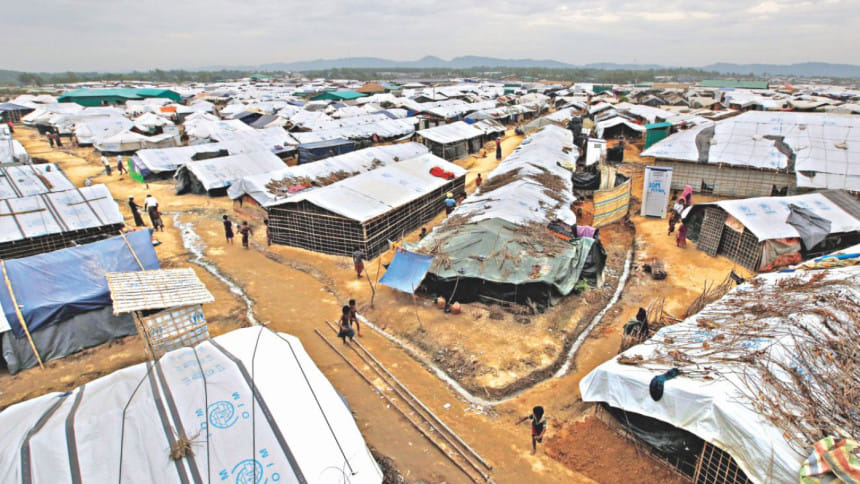
Prime Minister Sheikh Hasina yesterday in parliament said Bangladesh is faced with an unprecedented crisis over providing humanitarian assistance to the Rohingya refugees and sending them back home.
“The Rohingya crisis has taken a serious turn due to the recent military operation and violence in Rakhine State of Myanmar. The present situation is very much worse compared to anytime in the past,” she further said while responding to a question from treasury bench lawmaker Abdul Matin.
The prime minister, however, said she firmly believes that despite all odds, there would be a peaceful solution to the crisis with the assistance of international community.
Her comments came as more than 600,000 Rohingyas have crossed over from Myanmar into Bangladesh since late August, driven out by a brutal military crackdown described by a top UN official as a textbook case of "ethnic cleansing".
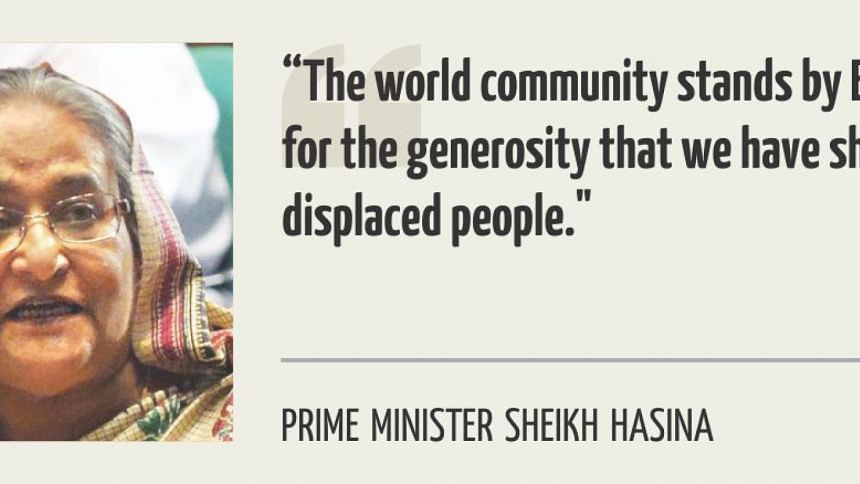
Hasina said more than 10 lakh of the Myanmarese nationals are now staying in Bangladesh; they include the four lakh who had entered the country earlier in various phases.
“And still Rohingyas are entering Bangladesh every day,” she told parliament with Speaker Shirin Sharmin Chaudhury in the chair.
She added, "The world community stands by Bangladesh for the generosity that we have shown to the displaced people."
The PM mentioned that Bangladesh has been making vigorous diplomatic efforts to have a special session of the UNHCR on Rohingya crisis and repatriate the refugees.
Dhaka is also maintaining bilateral communications with Naypyidaw, she said, adding, “Today's problem has its root in Myanmar and Myanmar has to find a solution.”
Hasina said the entire global community has expressed solidarity with Bangladesh for the first time on any issue, which never happened before.
Referring to lingering of the Rohingya crisis for decades, the premier said it all began in 1978 when Ziaur Rahman came to power unconstitutionally.
NO PROVOCATION
Hasina said a vested quarter has been trying to engage the Rohingyas in acts of violence.
Issuing a note of warning against the instigators, she said, “Anybody who provokes Rohingyas into getting involved in acts of violence must face the music. And there is no doubt about this.”
Reiterating her government's firm stance against militancy, she said Dhaka would not allow anybody to use this land to operate terrorist activities in any neighbouring country.
“I want to say one thing: we believe in peace; we want to maintain good relations with our neighbours; we'll in no way allow anyone to use the land of Bangladesh to carry out any sort of terrorist or provocative activities in any other country. We won't tolerate this,” she said, answering to a question from Nazibul Bashar Maizvandary.
In a supplementary question, Cox's Bazar lawmaker Abdur Rahman Bodi said 15,000 people from five unions in his constituency have been suffering as their resources were affected because of the arrivals of Rohingyas.
In response, the PM said, “If we can provide food and other assistance to 10 lakh Rohingyas, we can feed 15,000 locals as well.”
Responding to a query from Fazilatun Nesa Bappy, she said UN Secretary-General António Guterres talked to her on October 21 over the phone regarding the Rohingya issue.
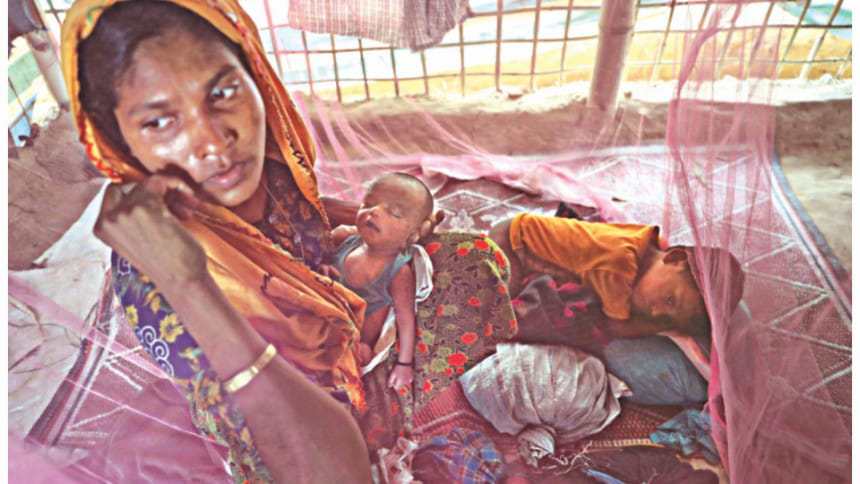
“At that time I sought his cooperation in implementing my five-point proposal for a permanent solution to the Rohingya crisis. I firmly told him that Myanmar has to take steps to ensure return of their forcibly displaced nationals soon with safety and dignity,” she said.
Referring to BNP Chairperson Khaleda Zia's recent visit to Rohingya camps in Cox's Bazar, the premier raised a question about the motive behind her trip.
“Many are curious exactly why she went there,” she said.
“The way she went there, gorgeously attired and with a huge motorcade, it can be asked whether she went there to attend a wedding ceremony or stage a showdown.”
Pointing to Khaleda's allegation that the government failed to address the Rohingya crisis, the PM lambasted the BNP chief.
“We are not bothered about the words of those who patronise the war criminals and kill people by hurling bombs in the name of movement,” Hasina also said.
Referring to the Rohingya influx in 1991, she said she visited Cox's Bazar that time before Khaleda Zia, who was then prime minister.
In reply to another query, Hasina said Bangladesh has been recognised worldwide as a successful country in terms of peace and socio-economic development, especially because of her government's responsible foreign policy and diplomatic efforts in the last eight years.
She mentioned that so far 5,27,597 Rohingyas have been registered and given ID cards.
[With inputs from UNB, BSS]

 For all latest news, follow The Daily Star's Google News channel.
For all latest news, follow The Daily Star's Google News channel. 


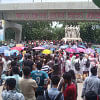
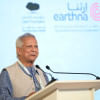




Comments